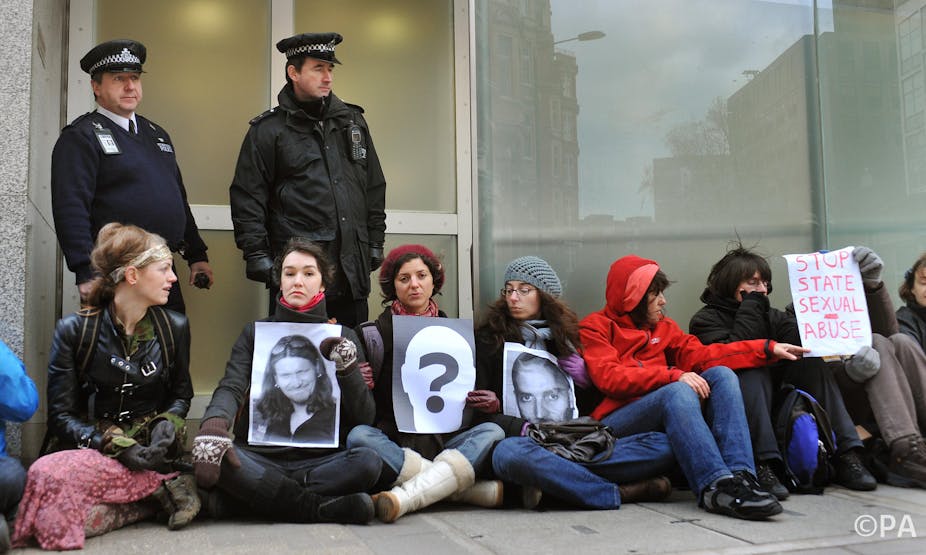The Metropolitan Police has agreed to pay more than £400,000 to an anonymous woman who unwittingly entered a relationship with an undercover police officer investigating her.
The woman was left traumatised when she discovered that the man who had fathered her first child had lied to her about his identity throughout their relationship. It’s a case that casts light on some of the deeply unethical behaviour that has gone on in undercover policing over the years.
Undercover Metropolitan police officers spent years penetrating protest groups in the UK. They assumed false identities and gained positions of trust within the groups. Some were arrested and even prosecuted while maintaining their cover as activists. Some went into a string of relationships with women in the groups they were investigating and some, as in this case, even fathered children.
Then they disappeared, leaving the women feeling bewildered and upset. Only years later did the woman in this particular case discover that her “boyfriend” was in fact an undercover officer.
Although compensation is now to be paid to the woman deceived by Bob Lambert, neither he, nor any of the other officers involved, face prosecution. The legal argument is that they did not commit offences against the women because they were not using their undercover identities to trick the women into having sex; the relationships were consensual.
The women argue they would never have slept with these men if they knew who they really were. The woman in the Lambert case was an animal rights activist but officers from the undercover unit also gathered intelligence on families campaigning over police shootings, deaths in police custody and those calling for investigations into racist murders.
The Met Police has already admitted such intelligence should not have been gathered and that the unit “lost its moral compass”. But a look at the record seems to show the unit never picked up its moral compass in the first place. How did it all go so wrong?
Undercover policing is needed to penetrate criminal networks and to gain intelligence on subversive groups. Undercover officers have played a part in tackling drugs importers, armed robbers and people traffickers. Undercover policing is also risky. In extreme cases it can lead to officers experiencing physical injury, suffering mental illness or even becoming addicts.
Unethical behaviour
But undercover policing in the UK has been bent out of shape ever since the 1960s, when it first gained real traction as a police tactic. This was when the Special Demonstration Squad – the Metropolitan Police undercover unit – was first established.
Various kinds of unethical behaviour started to emerge. The groups that were investigated didn’t pose a threat, for a start. Undercover police officers first targeted at anti-Vietnam War protesters in the late 1960s then anti-apartheid campaigners in the 1980s. By the 1990s, they were working on environmental protesters, about which they seemed to have developed a fixation.
When families campaigning for police investigation and reform are added it seems that the tax payer was funding covert in-depth investigations into groups that could not reasonably be classified as subversive or dangerous.
Another big problem was that much of the time, the police were not collecting material for evidence in a trial – they were collecting intelligence. Their activities were never likely to be challenged in court and their superiors seemed unconcerned as long as information was flowing in. Even when cases did get to court, officers did not disclose their roles or the way they might have been acting as agent provocateurs. The officers were not tasked or monitored properly, which enabled them to go rogue.
Undercover policing finally got a detailed legal framework under the Regulation of Investigatory Powers Act 2000. This sets out the tests for deploying an undercover officer. But there remains confusion about the law as well as about which groups should be targeted and how investigations should operate. Undercover policing is necessary and risky but its not a blank cheque to breach the trust and disintegrate the lives of those engaging in protest.
The Special Demonstration Squad was disbanded in 2005 but other organisations continue to run. These include the National Domestic Extremism and Disorder Intelligence Unit, with its undercover officers and database of widely defined “extremists”. Let’s hope undercover policing never again goes completely undercover.

